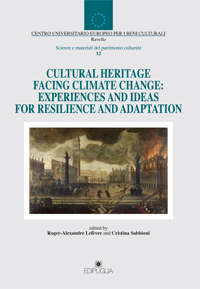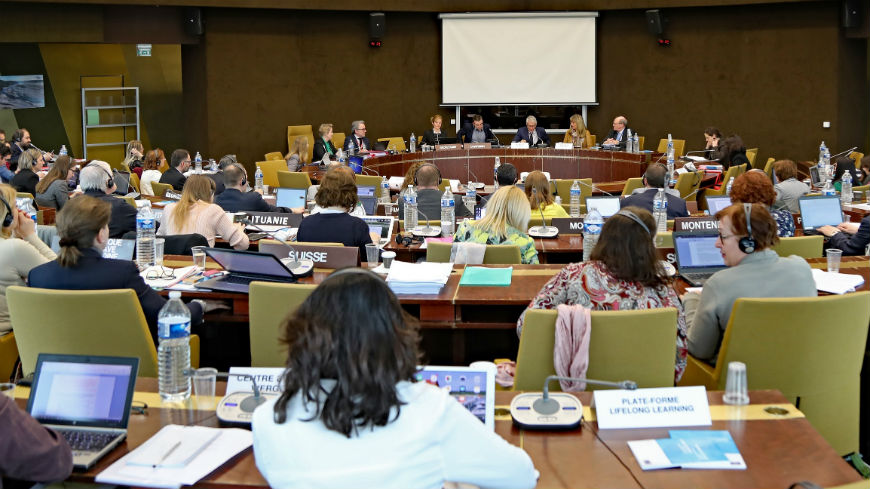The Executive Secretary of the EUR-OPA Major Hazards Agreement presented the Agreement to the 9th Plenary Session of the Council of Europe Steering Committee for Educational Policy and Practice held in Strasbourg on 21-23 March. He emphasised the projects carried out on prevention, preparedness and risks education. A particular focus was put on the BeSafeNet Project; a web tool for promoting risk culture among population and the Olympiad competition between secondary schools in States parties to the Agreement to be organised in April 2019. The Education Committee members were invited to propose a list of schools interested in taking part in this online competition. This initiative is part of the cross-sectoral actions of EUR-OPA to promote the mainstreaming of disaster risk reduction in sectorial policies.
Cultural Heritage

Climate change, which lies behind the increasing frequency and intensity of some natural disasters, is exposing cultural heritage to new threats where few used to exist and increasing the vulnerability of sites already at risk.
The EUR-OPA Major Hazards Agreement is helping to protect cultural heritage against natural and technological disasters by promoting risk culture and disaster resilience. It co-operates on a crosscutting basis at the Council of Europe with the Faro Convention on the Value of Cultural Heritage for Society in order to protect tangible and intangible heritage as a vector for identity and collective memory that can consolidate and revitalise communities, and also with the European Landscape Convention in terms of protecting cultural landscapes.
- Recommendation CM/Rec(2018)3 of the Committee of Ministers to member States on cultural heritage facing climate change: increasing resilience and promoting adaptation
- Recommendation 2009 - 1 on Vulnerability of Cultural Heritage to Climate Change of the Committee of Permanent Correspondents

This publication follows the International Conference on Cultural Heritage and Climate Change, held in Ravello, Italy, on 18 and 19 May 2017.
The Faro Convention Action plan launched a Topical series on community preparedness and post-disaster revitalisation, following a research study carried out in Fontecchio, Italy in October 2017, with the support of EUR-OPA.
European University Centre for Cultural Heritage
The European University Centre for Cultural Heritage is one of EUR-OPA Specialised Centres. It promotes knowledge, management and fruition of cultural heritage through an interdisciplinary approach.



